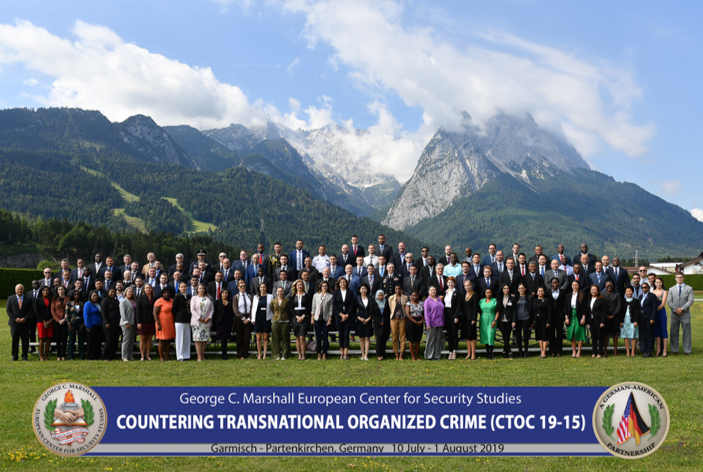Cryptocurrency miners are often viewed as the unexciting plumbing behind crypto, with a safe and simple business of earning new coins from processing transactions.*
Let me dispel that myth.
Here are 33 , 34, 35 ways crypto miners allegedly have been involved in crime and other questionable activity.
Sanction Related Crimes
- The cryptocurrency miner is a sanctioned country. Iran and North Korea are home to large mining operations used to generate funds to evade sanctions. Transaction fees paid to miners may be going directly to a sanctioned regime.
- The crypto miner is on the OFAC sanctions list.
- The miner process transactions and receives fees from sanctioned countries.
- The miner validates transactions for or is a Transnational Criminal Organization such as a drug cartel.
- The miner validates transactions for or is a sanctioned entity such as a ransomware gang.
- The miner pays out fees to members of the mining pool who reside in banned jurisdictions.
- The miner has mining rigs located in sanctioned countries.
Theft Crimes
- The crypto miner steals computing power via malware (cryptojacking). For instance, by installing crypto mining software on display models of new gaming laptops at retailers.
- The miner steals electricity. Including allegedly at work at the national police in Kyrgyzstan, Malaysia, Germany, Taiwan, China, the US…literally anywhere with electricity.
- The miner stole the mining rigs or hardware.
Engaging in Other Crimes Themselves
- The miner also operates an illegal marijuana grow houses since they are already stealing electricity to run their mining rigs.
- The cryptocurrency miner also happens to run the world’s largest darknet marketplace.
- The miner uses mining fees/rewards to fund threats to national security. For example, the Department of Justice alleged that Russia funded its 2018 hacking activities such as purchasing servers via bitcoin mining.
- The mining software contains malware and/or password stealing code.
Facilitating Crime and Money Laundering by Others
- The crypto miner prioritizes high-fee transactions knowing that criminals and fraudsters will overpay on fees to expedite transactions. One of the hallmarks of money laundering and financial crime is not caring about fees. Criminals are more concerned with finalizing the transaction than minimizing fees. To that point, Chainalysis reported that the percentage growth in value received by mining services from illicit sources grew over 250% between 2020 and 2021.
- The miner validates a transaction with a ridiculously high transaction fee that was part of an extortion.
- The miner validates transactions from darknet markets, mixers or “enhanced privacy coins” that are highly associated with criminal activity.
- The miner accepts high transaction fees originating from illicit activity in exchange for either newly mined coins or the return of the mining fees, in collusion with illicit actors seeking “clean” coins.
- The miner coordinates with a schemer to get a transaction processed without the need to broadcast and wait in the mempool.
- A mining pool acts as a de facto mixer for illicit crypto.
Investment / Securities Fraud
- The mining company made false or misleading statements in its securities offering.
- The crypto miner is a scam or Ponzi
- The miner is allegedly selling an unregistered security. For example, the miners “sells” customers mining rigs. However, the miner controls and manages the mining rigs. All profits are due to the miners efforts.
Tax, Corruption & Embezzlement Crimes
- The miner evades paying taxes.
- Cryptocurrency miners have paid bribes to government officials in exchange for subsidies, energy assurances, to avoid shut downs, or avoid prosecution for electricity theft.
- The crypto miner embezzled from the government to fund the operation. Per the DOJ, “Greenberg used his position as Seminole County Tax Collector to embezzle and divert over $400,000 to benefit himself, including to purchase cryptocurrency, to operate a business that sold cryptocurrency mining machines, to mine cryptocurrency, and to purchase personal items.”
Environmental Crimes & Issues
- The miner produces large amounts of electrical waste and illegally dumps the waste.
- The mining rigs relies on minerals and elements physically mined in conflict zones.
- Large crypto mining operations rely on large amounts of water for cooling. Water used for cooling is polluted and contributes to water scarcity.
Transaction Fee or Reward Manipulation
- The miner mines empty blocks to earn new coins.
- The miner manipulates transaction fees.
Crypto Market Manipulation
- The miner front-runs or back-ends transactions from the mempool to extract value and/or manipulate crypto prices.
- The miner/ mining pool also owns an exchange and front-runs customer transactions.
Other Issues
- The miners are under common control or working together as a cartel to various ends… 51% attack, or pump up fees or blacklist participants, etc.
- The miner operates out of a country that has banned mining
- Miner equipment company makes false statements about use cases & partnerships.
- Mining companies used mined crypto as collateral for cash loans. Crypto prices tanked, the collateral’s value dropped, and loan defaults ensued.
* For simplicity, I’m lumping crypto miners, mining pools, and validators together in this article.
Want more DSA Cryptocurrency Insights?
The Offshore Crypto Exchange Illusion
Fraud within Crypto Companies: The Limits of Blockchain Transparency
Cryptocurrency SARS: What do we know?




